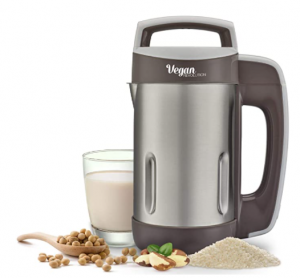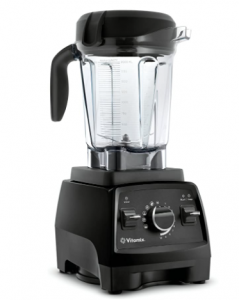Milk alternatives have become near and dear to my heart in more recent years. Researchers believe that millions of Americans are affected by the detrimental effects of milk consumption, but they just don’t know it. As it is, 65% of American adults have some form of lactose intolerance. Our foray into milk alternatives started with lactose intolerance in my family, but we’ve all grown used to it, and we love it.
We’ve also tried a ton of variations for milk alternatives, including almond milk, cashew milk, coconut milk, hemp milk, macadamia milk, oat milk, pea milk, pumpkin seed milk, and sunflower milk. With recipes that we can whip up in a snap (mostly), they’re great for our health and the environment, too.

Why Milk Alternatives Are Important
While cow’s milk offers calcium and essential nutrients and protein, it also is indigestible by many Americans, or it’s associated with sensitivities that are not easily overcome. So, while it is important to continually maintain an awareness of the nutritional value of milk alternatives, they offer great non-dairy solutions with fewer calories and a myriad of health and nutritional benefits.
If you’re looking for a quick and easy way to make milk alternatives part of your life, you should consider investing in this:
ChefWave Milkmade Dairy Alternative Vegan Milk Maker
It’s the perfect solution for making almond, cashew, oat, soy, macadamia, and coconut milk, without soaking. So, there’s no muss, no fuss, and even an auto-clean function. The ChefWave Milk Maker is the perfect solution if you’re looking to embrace milk alternatives, with their healthier and more nutritious options. It even comes with a recipe book and several auto functions!
Vegan Revolution Vegan Milk Machine
This compact and affordable machine allows you to make vegan milk from nuts, grains, or seeds like almonds, coconut, oats, quinoa, rice, soy, and more. This revolutionary machine is easy to use, with a convenient recipe guide and stainless-steel blades. Just add the pre-soaked grains, nuts, or seeds with water and your preferred flavoring. The Vegan Revolution Vegan Milk Machine does the work for you, processing, heating, and calculating the appropriate time to make your milk alternative.
Vitamix Professional Series 750 Blender
This professional-grade blender features five speed settings, with a low-profile, 64-ounce container, hardened stainless-steel blades, and self-cleaning. The Vitamix Professional Series 750 Blender is the perfect solution for making the best creamy and delicious milk alternatives, without ending up with a gloopy or over-mixed concoction. It has simple controls, so you can easily adjust to the power level that will pulverize your almonds, cashews, oat, soy, macadamia, and coconut to the perfect blend.
Top Recipes For Milk Alternatives
Yes, milk alternatives are important, but it can be so frustrating when you need your milk alternative and you just can’t find it at the store. The almond milk, soy or cashew milk is all out. Yeah, I could go to another store, but I’d rather not spend my whole day running around to 10 different stores. I prefer to make it a one-stop shop. I guess that’s why we first started to make our own milk alternatives. How hard could it be, after all?
We already make smoothies and all manner of other concoctions. Milk alternatives didn’t seem like they would be that much different. And I do so love to know what’s in what I eat and drink. Following the recipes was a snap from the start, and it just keeps getting easier and better the more we learn about it and test out flavors and combinations.
Homemade Almond Milk or Cashew Milk
First, pre-soak the nuts for 8-12 hours, with a ratio of 1 cup raw nuts to 3 cups water to make the milk creamier. Then, put the nuts in a bowl with about 2 inches of water. Soak them again overnight. You can soak them longer to make the milk creamier. Then drain and rinse the nuts, and put them in a blender with 4 cups of hot filtered water. Add 1 teaspoon of vanilla extract and 1 ½ teaspoons of agave nectar.
Use the low setting to blend the concoction, and then increase the speed to complete the creamy blend. Then strain the mixture through a cheesecloth to remove nut bits, squeezing all the liquid into a mixing bowl. Store the almond or cashew milk in the fridge for up to 4 days and shake it before using it. It’s also a great addition to your fruit smoothies.
Coconut Milk
To make coconut milk, you just take 2 cups of shredded coconut (unsweetened) and add 4 cups of hot water to it. You let it sit just long enough for the shredded coconut to start to soften, which takes about 5 minutes.
Then, it’s just a matter of blending the mixture on low for a few seconds, and then increasing the speed for 1 minute or until it reaches the consistency you want. You can strain it twice, once with a fine-mesh colander and once with a cheesecloth to remove most of the coconut bits. Store it for up to 4 days, and shake before drinking.
View this post on Instagram
Oat Milk
The process of making oat milk starts with soaking 1 cup of old-fashioned oats in a bowl of cold water 2 inches deep. Soak them for an hour and then drain off the water to remove the starch. Then, put the oats in a blender with 3 cups of filtered water.
Blend it on high for about 30 seconds and then strain it with a cheesecloth into a mixing bowl, squeezing out the liquid. Add 1 teaspoon of vanilla extract and 1 ½ teaspoons of agave nectar. You can store the oat milk in the fridge for up to 4 days, shaking before you use the oat milk. (Note that the oat milk can take a bit of testing to get the right speed, particularly if you have a powerful blender.)
Pea Milk/Seed Milk
It’s a bit off-kilter, compared with the other choices here, but you really should try vegetable milk options like this. Use this same process to make seed milk, with pumpkin seed milk as just one example. For pea milk, put 1 cup dry yellow split peas in a bowl full of water and soak them overnight. Drain away the water and rinse them.
Add the strained peas to a pot of water and then boil them until they are soft. Then, drain them again, and add them to the blender with 3 cups of filtered water, vanilla extract, and a bit of salt. Blend the concoction until smooth, around 30 seconds. Then, strain and filter the liquid through a cheesecloth. You can store it in the fridge for up to 4 days.
The Bottom Line
While you might not decide to make milk alternatives an everyday option for you or your family, they’re a great option to try every now and then. You can explore these and other recipes, test out various flavors and combinations, and (most importantly of all) move toward more healthy, conscious living options.

What are your thoughts about milk alternatives? Have you tried them? We’d love to hear your thoughts in the comments below.
For More Recipes, Check These Out:
These Great British Baking Show Recipes Will Test Your Kitchen Skills
Make These 7 Easy Recipes Out Of Your Always-Stocked Pantry Staples




